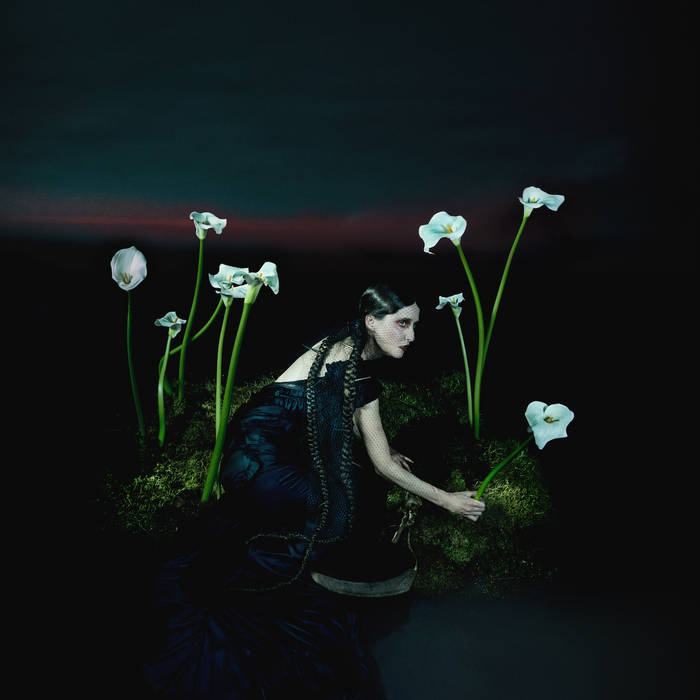Penelope Trappes is very clear that her fifth album, A Requiem, is about grief. Though not a traditional dirge, the opening notes of the album are an open-hearted declaration of loss and mourning, sitting with the different facets of that experience.
Trappes has a strong sense of dichotomy, that every aural high has a low, the smooth always has the rough, the light is brought down by the heavy. It is an embodiment of grief, which subdues us with shock and makes us lash out with anger. The dark, heavy feelings of the early songs give way later in the album, but never fully leaves – the harsh buzzing in the final moments of album closer ‘Thou Art Mortal’ is a reminder of a pain that never goes away even if the edges get smoothed down.
This opposition is present early on the album on ‘Platinum’, with a low rumbling like a thunderstorm recreated for a radio play and a visceral clack of percussion. Trappes’ voice echoes gently as though from a tunnel while a quiet cello undulates throughout the song.
Trappes uses the cello as an ominous portent on the album, creating more mood than melody. It adds to the nightmarish quality of ‘Sleep’, ushering in a rough, unsettling feeling with its low sawing. The climactic refrain of the song feels more like a punch, an atonal slamming of piano keys or guitar strings – there is too much dissonance to really be sure of the instruments.
After the violence of ‘Sleep’, ‘Anchor Us To Seabed Floor’ feels like a transition from death to the white light version of the afterlife. Trappes’ ambient vocals wave like seaweed in a current, soft and abstract, only to be disturbed by a build up of white noise.
These competing textures in her compositions change the perception around Trappes’ voice – what is soothing and delicate in an airy electronic song or emerges from the din on ‘A Requiem’ seems to struggle emotionally against harsher tones. But her voice is just as evocative whether she sings in Gaelic or a wordless refrain or an insistent chant, always meeting the spaciousness of the album.
The same way all good dramatic works have at least one joke for levity, ‘Red Dove’ has a deceptively playful synth warble. A competing keyboard line eventually tramples any sense of whimsy in the song, but on an album where many songs have loose, vapour-like structures, ‘Red Dove’ has a defined shape.
But it’s that looseness that keeps A Requiem moving forward. And like grief, even though Trappes’ songs don’t feel linear, there is still a progression in them. There isn’t a definite resolution to the album, but it’s cathartic all the same.


